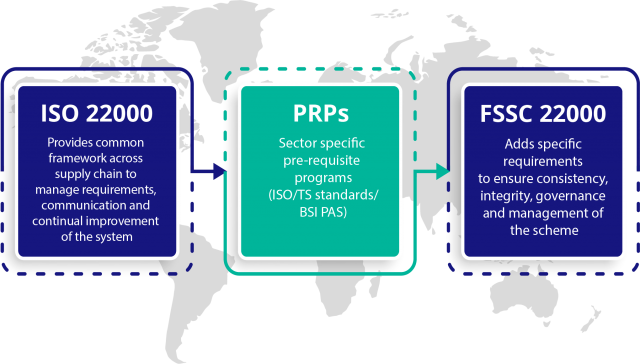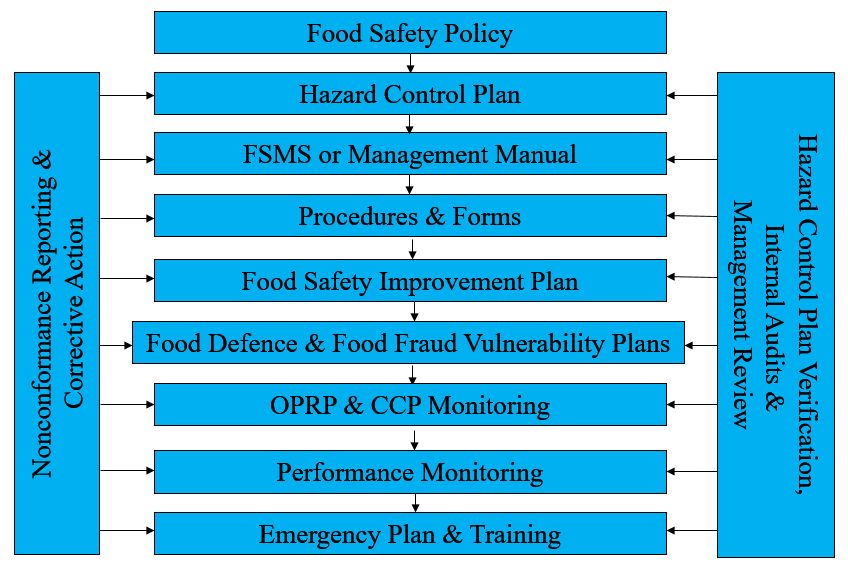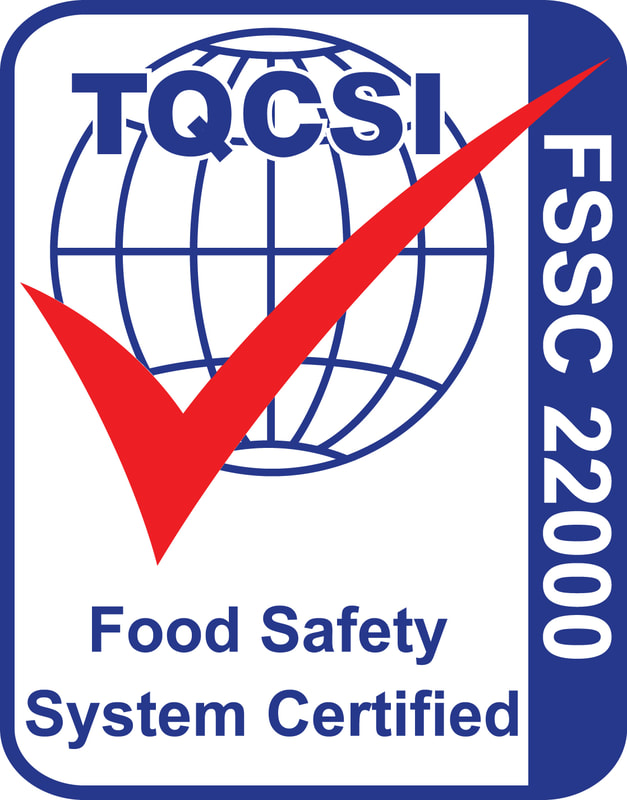FSSC 22000 - Food Safety Management System
FSSC 22000 for Food Safety Management Systems provides a framework for effectively managing food safety and quality responsibilities. FSSC 22000 demonstrates that a robust and effective food safety management system (FSMS) is in place to meet the requirements of regulators, food business customers and consumers.
The FSSC 22000 Scheme is recognized by the Global Food Safety Initiative (GFSI) and supported by the European Food and Drink Association (CIAA) and the American Groceries Manufacturing Association (GMA).
Other GFSI programs like IFS, BRC & SQF are product certification standards but FSSC 22000 is a management system certification scheme, which means a significant difference in the audit approach – essentially FSSC 22000 provides the framework for organisations to implement processes how they wish to meet the requirements.
The FSSC 22000 Scheme is recognized by the Global Food Safety Initiative (GFSI) and supported by the European Food and Drink Association (CIAA) and the American Groceries Manufacturing Association (GMA).
Other GFSI programs like IFS, BRC & SQF are product certification standards but FSSC 22000 is a management system certification scheme, which means a significant difference in the audit approach – essentially FSSC 22000 provides the framework for organisations to implement processes how they wish to meet the requirements.
FSSC 22000 Has Three Components
Organisations can achieve FSSC 22000 certification in the following scopes:
- Food manufacturing (ISO 22002-1)
- Catering (ISO 22002-2)
- Farming of animals (ISO 22002-3)
- Food packaging manufacturing (ISO 22002-4)
- Food and feed for animals (ISO 22002-6)
- Retail and supermarkets (PAS 221)
- Logistics (NTA 8059 - being developed as ISO 22002-5).
Food Safety Management System Requirements
A Food Safety Management Systems for FSSC 22000 requires organisations to:
- understand external & internal issues, and interested parties, relevant to food safety
- develop a Food Safety Policy – typically one page document declaring commitment to food safety
- appoint a Food Safety Team
- develop and implement a Hazard Control Plan
- develop a FSMS or Management Manual briefly addressing the clauses of ISO 22000 & specific FSSC 22000 requirements
- implement food safety practices to address the respective pre-requisite program (PRP)
- develop procedures, particularly for each of the critical control points (CCPs) and operational pre-requisite programs (OPRPs)
- implement record keeping for monitoring of the CCPs and OPRPs
- develop and monitor food safety objectives and targets
- embrace food safety risks and opportunities
- develop and implement a Food Defence Plan and Food Fraud Vulnerability Plan
- monitor food safety performance
- plan responses to food safety emergencies
- ensure staff are competent and understand their food safety responsibilities
- control food safety nonconformances and take corrective action for significant or repetitive nonconformances
- ensure internal and external communication of food safety issues
- implement evaluation and monitoring of external providers
- implement an allergen management program
- implement verification of the Hazard Control Plan and PRPs
- conduct internal audits of the food safety management system
- ensure senior management strategically review the food safety management system.
Documentation Requirements
- Food Safety Policy
- Hazard Control Plan
- FSMS or Management Manual
- Procedures
- Food Safety Improvement Plan (monitoring food safety objectives and targets)
- Food Defence Plan
- Food Fraud Vulnerability Plan
- Emergency Plan
- Allergen Management Plan
- Records for OPRP & CCP monitoring
- Registers for nonconformances and corrective action.
Implementing an FSSC 22000 Food Safety Management System
Benefits of an FSSC 22000 Food Safety Management System
- demonstrated due diligence meeting regulatory and customer requirements
- enhanced company profile, reputation and brand protection
- increased stakeholder confidence
- certification that is accepted by all organisations
- significantly greater marketing opportunities leading to higher profits
- enhanced food safety in supply chain and increased supply chain management
- minimised risk and food safety related incidents
- improved food safety performance
- greater protection from spurious food poisoning allegations
- food safety culture embedded and employees empowered
- easily integrated with other management systems.
TQCSI Certification Process
- contact your TQCSI Office and ask for a quote or apply on-line - TQCSI will need to know what your business does and how many employees (full time equivalent)
- to prevent delays, don’t wait until your Food Safety Management System is fully implemented.
Certification Mark
Need Help?
Contact us here.



